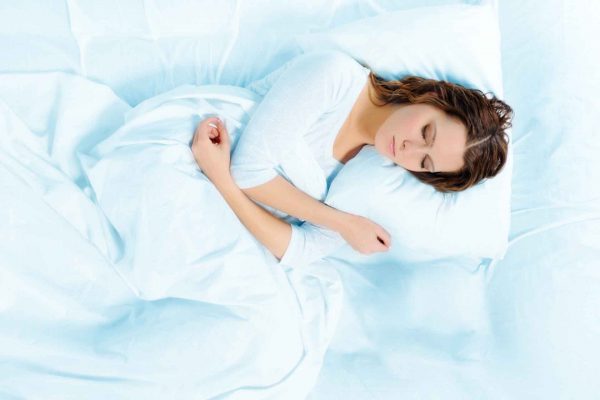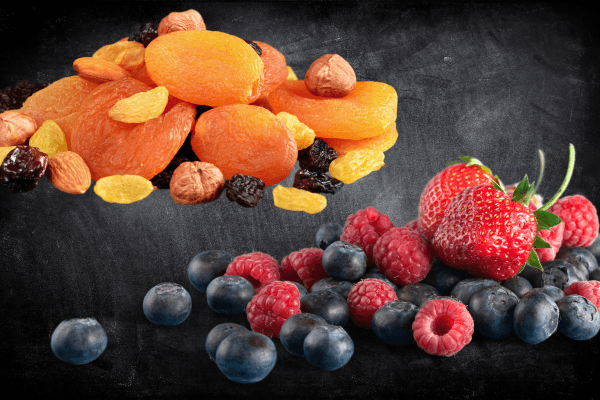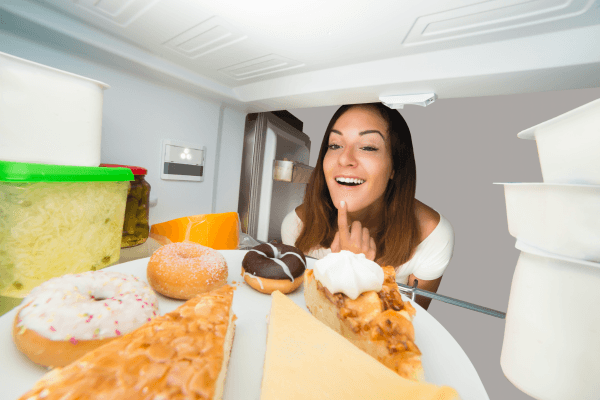You might expect a weight loss blog to only write about food and exercise. However, sleep deprivation has been linked to obesity and Type-2 Diabetes as well as a range of cardiovascular diseases. Sufficient, good quality sleep is an important part of your weight loss regime. Your diet is not only important in terms of calorie intake but it can also impact how well you sleep.
Important rules to remember when eating to improve your sleep patterns include:
- Don’t eat or drink too late
- Don’t eat or drink too much
- Avoid food and drink that can interrupt your sleep
How eating late affects your sleep
Eating a large meal before bed can make you feel sleepy to start with but when you lie down there is a possibility that you might feel uncomfortable if you are too full or develop heartburn which will make you restless. Leaving your evening meal until later doesn’t mean that you will end up storing those calories as fat because your digestive system shuts down; this is a myth. However, people who delay eating thinking they will save calories do tend to overeat or eat food that is higher in calories. Your digestive system does continue to work whilst you are asleep but if you leave it too late, you might not feel hungry enough to have breakfast which also has a knock on effect by causing overeating once you get the chance for a meal.
It might be obvious why you shouldn’t drink too much before going to bed; drinking too much before bed results in having to wake up in the middle of the night to use the bathroom (especially as you grow older). We recommend that you stay hydrated throughout the day since thirst is often mistaken for hunger but you need to ease back on the liquid consumption around an hour before bed.
Food and drink that can disrupt your sleep includes anything hot and spicy, anything containing caffeine and alcohol. The hot and spicy foods can cause heartburn as already mentioned and foods that are rich in protein are harder to digest which can lead to discomfort. Foods that are high in fat or salt can also lead to restless nights so avoid these completely at night.
I’m sure you already know that caffeine is a stimulant that keeps you awake so obviously coffee and tea are not good drinks before bed. However, there are many other sources of caffeine that you might not be aware of. For example, decaffeinated coffee (these are not completely caffeine free!), non-cola soft drinks and chocolate (including any food or drinks with them in) all have amounts of caffeine that could disrupt your sleep. If you are taking pain relief medications, weight loss pills or cough and cold remedies then you might want to check the label as many of these also contain caffeine.
You might think that an odd glass of wine or beer at night might help you to nod off but although it does make you sleepy it can make your sleep lighter. If you don’t regularly fall into a deep sleep, it can have the same impact as having no sleep at all: higher blood pressure, poor blood glucose control and increased inflammation, two of these have been linked to an increased risk of obesity and Type-2 Diabetes.
So, now you know what not to do, here are some foods and drinks that can actually help you to have a good night’s sleep. Foods containing serotonin or tryptophan (which is a building block of serotonin) are thought to help you to sleep well as this neurotransmitter calms you down and regulates sleep. Serotonin is also a building block of melatonin; a hormone which controls your sleep patterns and reduces stress. Foods that are known to contain tryptophan include:
- Dairy products such as milk and cheese
- Oats
- Bananas
- Fish
- Poultry (particularly turkey)
- Eggs
- Nuts and seeds
Carbohydrates are also known to contain serotonin and to promote tryptophan passage to the brain so any carbs will help you to sleep well. However, you must limit your carbohydrate intake if you want to lose weight so keep an eye on your portion size.
By following these recommendations a bowl of cereal, crackers and cheese or even a boiled egg with toast would be the ideal evening meal (or snack) as long as you don’t eat too much.
Other factors which affect your sleep
There are other ways to ensure you are able to sleep better: things like televisions, mobile devices, games consoles and mobile phones are all lit by LEDs (light emitting diodes) which particularly use light in the blue and green spectrum. The retinal cells in our eyes are more sensitive to light of a shorter wavelength, which these colours are. As little as 1 hour of light exposure has been known to bring our melatonin back to daytime levels so you should ban these from the bedroom.
Exposure to sunlight, particularly in the morning, can improve your sleep at night by helping to regulate your body clock. Your body has its own ideas of when day and night happen and by using electric lights and having a lie in at the weekends can seriously upset this. Exposing your body to sunlight later than 8:30am does have an impact but it does seem to have its greatest effects before then. Unfortunately, indoor lighting has little (or no) impact on your body clock during the day.
The last tip to help you sleep is to get regular exercise; even light exercise if done regularly can promote sleep and it’s not just because you wear yourself out. It can take a while for the body to get used to the pattern because exercise once in a while is experienced as stressful to your body and stress will not help your sleep. Regular, routine exercise appears to have the greatest impact.
Certainly, routines (whether they are food, exercise or when you get up and go to bed) seem to be most effective in ensuring good sleep. Having regular sleep and waking times and things that you tend to do at the same time every day, even down to organising your clothes for the next day (if you do this every night) help your body to recognise that it is time to settle down and to sleep better.
Learn how to improve your sleep here: https://simplyweight.in/improve-your-sleep-and-lose-weight/
Simplyweight’s Specialist Online Weight Loss Plan has been designed to bring decades of clinical experience to people at an affordable price. To learn more, start your 7-day free trial today: https://app.simplyweight.in/subscribe/free-trial




